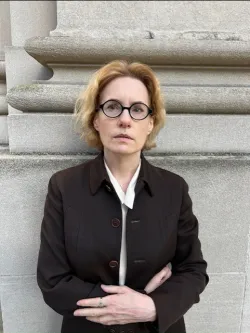
About the Book
The biggest revolution in Benjamin Franklin’s lifetime was made to fit in a fireplace. Assembled from iron plates like a piece of flatpack furniture, the Franklin stove became one of the era's most iconic consumer products, spreading from Pennsylvania to England, Italy, and beyond.
It was more than just a material object, however―it was also a hypothesis. Franklin was proposing that, armed with science, he could invent his way out of a climate crisis: a period of global cooling known as the Little Ice Age, when unusually bitter winters sometimes brought life to a standstill.
He believed that his stove could provide snug indoor comfort despite another, related crisis: a shortage of wood caused by widespread deforestation. And he conceived of his invention as equal parts appliance and scientific instrument―a device that, by modifying how heat and air moved through indoor spaces, might reveal the workings of the atmosphere outside and explain why it seemed to be changing. With his stove, Franklin became America’s first climate scientist.

About the Author
Joyce E. Chaplin is the James Duncan Phillips Professor of Early American History in the Department of History at Harvard University, where she teaches the histories of science, climate, colonialism, and environment. She is also an Affiliated Faculty Member in Harvard’s Department of the History of Science, an affiliate of the Department of Landscape Architecture at the Harvard Graduate School of Design, a Faculty Member of Harvard’s American Studies Program, and serves on the Faculty Steering Committee of the Salata Institute for Climate and Sustainability.
She serves on the Faculty Executive Board of the Harvard Museums of Science and Culture and is a Trustee of the Massachusetts Historical Society, the first historical society in the United States (1791). A former Fulbright Scholar to the United Kingdom, she has taught at six different institutions on two continents, an island, and a peninsula, and in a maritime studies program on the Atlantic Ocean.
An award-winning author, Professor Chaplin’s major works include An Anxious Pursuit: Agricultural Innovation and Modernity in the Lower South, 1730-1815 (1993), Subject Matter: Technology, the Body, and Science on the Anglo-American Frontier, 1500-1676 (2001), The First Scientific American: Benjamin Franklin and the Pursuit of Genius (2006), Round about the Earth: Circumnavigation from Magellan to Orbit (2012), and (coauthored), The New Worlds of Thomas Robert Malthus: Rereading the Principle of Population (2016). She is the editor of Benjamin Franklin’s Autobiography: A Norton Critical Edition (2012).

Sponsored By Ford Philanthropy
Mount Vernon has enjoyed a very special relationship with the Ford Motor Company dating back more than 90 years. We are grateful for their generous support and we applaud their abiding respect for American heritage.